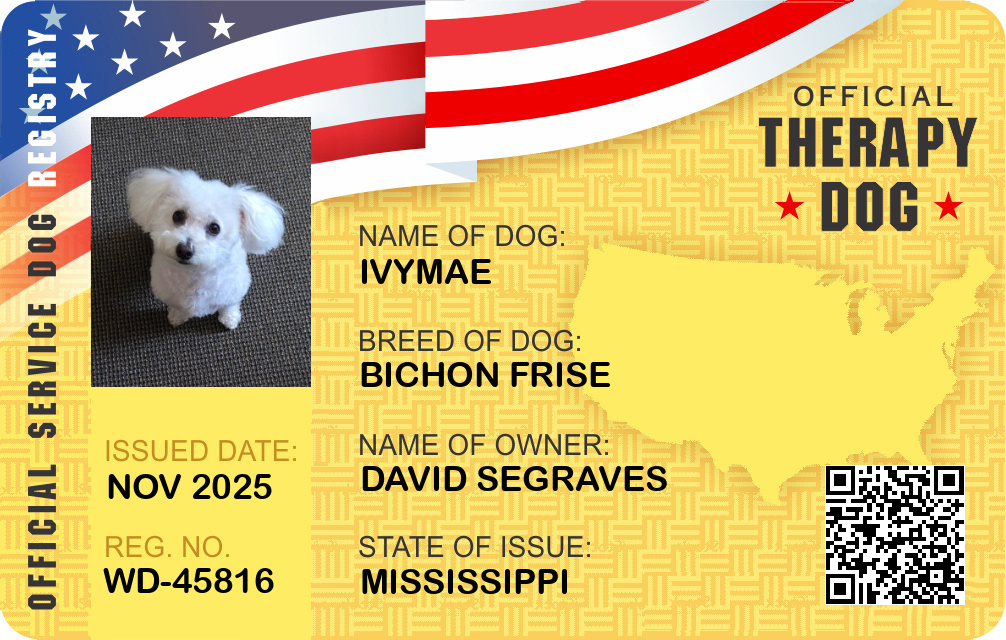Illinois Emotional Support Animal Laws

Overview of ESAs and Legal Definitions in Illinois
Understanding the laws regarding Emotional Support Animals (ESAs) in Illinois requires familiarity with federal and state-specific regulations. ESAs provide comfort and support to individuals with emotional or psychological conditions, but they are not afforded the same legal status as service animals under federal law. Each section below dissects how these animals are legally defined, the distinctions between ESAs and other support animals, and the laws that govern their presence in various scenarios.
What is an Emotional Support Animal?
An Emotional Support Animal is defined as a companion animal that offers therapeutic benefit to individuals with a diagnosed mental health condition or emotional disorder. Unlike service animals, which are trained to perform specific tasks, ESAs do not require specialized training. Their primary role is to provide emotional stability and mitigate symptoms simply through their presence. In Illinois, like in other states, the acknowledgment of an ESA hinges on proper documentation from a licensed mental health professional.
How ESAs Differ from Service Animals
The primary distinction between ESAs and service animals lies in their training and roles. Service animals, typically dogs, are trained to perform tasks directly related to a person's disability, such as guiding a person who is blind or alerting a person with hearing loss. Conversely, ESAs do not undergo task-specific training and are there to alleviate emotional or psychological conditions through companionship. This distinction is crucial as it impacts their legal protections and accessibility, both federally and within Illinois.
Key Federal Laws Affecting ESAs (e.g., FHA, ACAA)
Federal laws that impact ESAs include the Fair Housing Act (FHA) and the Air Carrier Access Act (ACAA). The FHA mandates that housing providers make reasonable accommodations for individuals with disabilities who own ESAs, prohibiting discrimination in housing practices. The ACAA previously provided for ESAs in air travel, allowing them to accompany their owners in the cabin. However, as of recent amendments, ESAs no longer hold the same air travel privileges and may be subject to fees and regular pet policies by airlines.
State-Specific ESA Laws in Illinois
Understanding how Illinois law interacts with federal regulations can guide ESA owners in navigating their rights and responsibilities.
Housing Rights and Responsibilities
Under the FHA, regardless of local laws, Illinois residents are entitled to request reasonable accommodations for ESAs in housing. This means that a landlord cannot refuse to lease to a person or impose pet fees if the tenant provides appropriate documentation indicating the animal is necessary for their emotional well-being. Landlords in Illinois must comply with this federal directive, although they retain the right to request specific documentation substantiating the need for an ESA.
Public Access and Accommodation
In Illinois, ESAs do not enjoy the same public access rights as service animals. This means they are not necessarily allowed entry into public places like restaurants, stores, or other facilities that do not generally permit animals. Businesses may extend some discretionary courtesy, but it is not a legal requirement like with service dogs under the Americans with Disabilities Act (ADA).
Transportation and Travel Rules
While ESAs used to enjoy special privileges under the ACAA, the latest regulatory changes have shifted policies significantly. Illinois residents traveling by air should be aware that most airlines now classify ESAs as pets, subject to airline-specific policies and applicable fees. However, state transportation systems, like buses and trains, follow federal non-discrimination guidelines, requiring specific documentation for any exception to their standard animal policies.
Employment and Workplace Considerations
ESAs do not have explicit accommodation rights under the ADA for public access in workplaces. Nevertheless, employers in Illinois are encouraged to engage in dialogue with employees seeking ESA accommodations as part of the ADA's interactive process. Each request is evaluated individually, considering the documented necessity of the ESA for the employee's emotional support and whether such accommodation would impose undue hardship on the employer.
Documentation, Requirements, and Processes in Illinois
Obtaining and maintaining an ESA in Illinois involves understanding the requisite documentation and avoiding common misconceptions related to registration and certification.
ESA Letters and Who Can Issue Them
To qualify for an ESA, Illinois residents need an ESA letter from a licensed mental health professional. This letter must indicate that the individual has a recognized emotional or psychological condition and that the
Register Your Dog Instantly
animal provides necessary support. Authorized professionals include psychologists, psychiatrists, therapists, and certain physicians who can verify the need for an ESA as part of the person's treatment plan.Registration, Certifications, and Common Misconceptions
No federal or Illinois state law requires ESAs to be registered or certified. Any organization claiming to offer official ESA certifications may be misleading owners, as the only genuine requirement is a legitimate ESA letter. Awareness of these misconceptions is crucial in avoiding unnecessary expenses and potential legal issues.
Landlord, Business, and Provider Verification Rules
In Illinois, landlords and service providers are entitled to verify the validity of an ESA letter but cannot ask for specific personal health information or details beyond confirming the necessity of the ESA. It is the responsibility of the ESA owner to provide clear and legitimate documentation, and landlords have the right to refuse accommodations if the documentation is inadequate or appears fraudulent.
Rights, Limitations, and Legal Risks
Understanding the boundaries of what ESAs can and cannot do is paramount for owners in Illinois to remain compliant with legal standards and avoid pitfalls.
Rights ESA Owners Have in Illinois
- Housing: Right to request reasonable accommodations in housing without being charged extra fees.
- Privacy: Protection from being asked intrusive questions about the specifics of their disability.
- Fair Treatment: Entitled to fair treatment in housing applications and residency continuation without discrimination due to having an ESA.
Limits on ESA Protections and Common Restrictions
- Public Access: No entitlement to access public places that do not allow pets.
- Travel: Subject to airline policies as regular pets unless specifically accommodated.
- Employment: Can request accommodations, but not guaranteed the same protections as service animals.
Penalties for Fraud or Misrepresentation
Fraudulently representing a pet as an ESA can result in legal penalties, including potential fines. Illinois law requires honesty in the presentation of ESA documentation, with penalties applied to misleading practices that compromise legitimate ESA rights.
Practical Guidance for ESA Owners in Illinois
ESA owners in Illinois benefit significantly from understanding not only their rights but also the responsibilities of presenting their ESA appropriately.
How to Qualify for an ESA Legitimately
To qualify for an ESA, individuals should:
- Consult with a licensed mental health professional about their condition.
- Obtain a written ESA letter stating their need for the animal for emotional support.
- Ensure the letter is up-to-date, typically within the last year, when presenting it for housing and travel accommodations.
How to Talk to Landlords, Airlines, and Employers
When discussing ESAs with landlords, airlines, or employers, it's crucial to:
- Be Prepared: Have documentation ready and explain how the ESA alleviates specific conditions.
- Be Proactive: Initiate conversations early in the housing or travel planning process to ensure compliance.
- Respect Policies: Understand and respect the policies specific to each business or service provider.
Tips for Avoiding Scams and Legal Problems
- Verify Sources: Only use ESA letters from state-licensed mental health professionals.
- Avoid Non-legitimate Registration: Be aware that no official ESA registry or certification is recognized by law.
- Stay Informed: Keep informed about both state and federal ESA regulations to ensure compliance.
Summary of ESA Laws in Illinois
- Understand the distinction between ESAs and service animals; ESAs provide emotional support without specific task-based training.
- Familiarize with federal laws: FHA offers significant housing protections, while ACAA changes affect travel.
- Comply with documentation: Only accept ESA letters from licensed professionals and resist unofficial registration.
- Recognize legal limits: ESAs do not have public access rights and can face travel restrictions.
- Consult professionals: Engaging with licensed therapists or doctors for ESA considerations is crucial in qualifying one’s animal appropriately.
Secure, legitimate handling of ESAs can facilitate smoother experiences and ensure rights are respected while maintaining compliance with Illinois and federal regulations.











